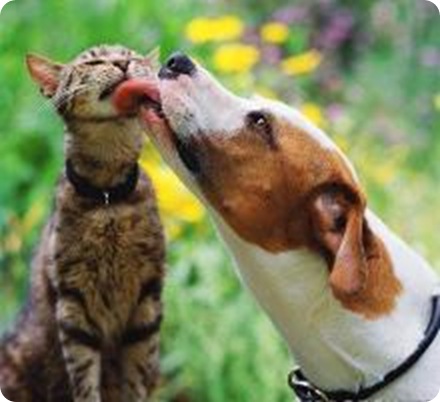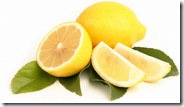
La diarrea es uno de los problemas más frecuentes tanto en perros como en gatos. Algunas son fáciles de solucionar, pero otras requieren más esfuerzo para encontrar la causa y el tratamiento específico.
La diarrea es uno de los problemas más frecuentes en los gatos de estas edades.
Se define como un incremento en el contenido de agua en la materia fecal asociado con un aumento en el volumen y frecuencia de la defecación.
Según el tiempo de evolución de una diarrea, se puede separar en dos categorías:
Diarrea aguda: se puede presentar con o sin vómitos. Puede también ocurrir con pérdida del apetito, letargia o deshidratación según la intensidad y duración del cuadro. La mayoría se deben a enfermedades virales o a cambios bruscos en la dieta.
En general este tipo de diarrea es autolimitante, es decir que con el transcurso de horas o días la situación se normaliza sola. Esto no quiere decir que no necesite tratamiento. A veces es necesario calmar el dolor del abdomen, administrar suero para mantener al paciente hidratado, aportar glucosa o eliminar los parásitos que pudiera haber. Siempre es importante realizar un ayuno y posterior dieta que permita a los intestinos descansar durante 24 a 48 horas y reponerse. Cuando las paredes de los intestinos están inflamadas o lastimadas cualquier alimento que el gatito ingiera, así sea solo leche, no hará más que provocar mayor inflamación y prolongar la diarrea. En un gatito muy joven la falta de ayuno puede agravar severamente el cuadro de diarrea original. Un medicamento común que puede ayudar es la crema de bismuto, pero su sabor suele ser desagradable y es difícil de administrar. Si puedes usarla, la dosis es de 1 a 2 ml 3 a 4 veces al día durante no más de 3 días. Si la diarrea persiste debes llevar a tu gatito a ver a un veterinario. No conviene usar antibióticos salvo que haya evidencia de una infección bacteriana, pues éstos alteran la flora bacteriana normal de los intestinos.
Después del ayuno, la primera comida debe ser muy digestible. Se sugiere atún al natural, huevo cocido, trocitos de pollo con arroz o los preparados comerciales específicos que el veterinario te indique. Lo mejor es darle pequeñas porciones varias veces al día y luego ir progresando hasta volver a la alimentación normal en 2 a 3 días. La leche debe suspenderse por completo hasta que las heces tengan consistencia normal.
Diarrea crónica: este tipo de diarrea es más frecuente en los gatos adultos asociada a inflamación intestinal crónica. En los gatitos las causas de estas diarreas no están del todo claras. Suelen encontrarse parásitos intestinales en casi todos los casos, pero puede ser un hallazgo incidental. Las obstrucciones parciales por cuerpos extraños que el gatito ha tragado pueden ser una causa de diarrea crónica. Otra causa que hay que estudiar es la intolerancia alimentaria; para esto el veterinario indicará como único tratamiento un cambio a una dieta más digestible y luego intentar reintroducir la dieta original u otra de mejor calidad o ingredientes diferentes.
Lo que es probable que ocurra es que las diarreas crónicas se produzcan como “secuela” de una diarrea aguda que se trató innecesariamente con antibióticos, alterando el balance de poblaciones bacterianas normales del intestino. Casi todos los jarabes para diarreas que se venden tienen una combinación de drogas entre las que se encuentra un antibiótico no absorbible. Mientras el gatito lo toma se encuentra bien, pero cuando la medicación se suspende la diarrea reaparece. Entonces se vuelve a dar un tratamiento con antibióticos y se entra en un círculo vicioso que prolonga el problema.
Finalmente el gatito tiene una diarrea de varias semanas de evolución que parece no responder a los tratamientos sintomáticos. En general conserva el apetito y no tiene vómitos.
Para llegar a un diagnóstico correcto es necesario hacer un análisis de materia fecal para descartar o tratar parásitos internos si los hubiera. El análisis de sangre suele dar normal, salvo una eosinofilia en el caso de Ancylostomas. Las radiografías sirven solo para detectar cuerpos extraños en el tracto gastrointestinal. Se puede también hacer un análisis especial para descartar giardias.
El tratamiento debe orientarse a erradicar la hipermultiplicación de bacterias anaerobias y restaurar la flora bacteriana normal. Se retira toda la medicación, se dan líquidos si son necesarios, se inicia un ayuno de 24 horas y se usa metronidazol (controla giardias ocultas y elimina bacterias anaerobias) durante 5 a 7 días. También se puede administrar Lactobacillus para ayudar a poblar el intestino hasta que se desarrollen las bacterias normales. Si todo esto no corrige la diarrea, es necesario cultivar las heces para detectar infecciones bacterianas como Salmonella y Campylobacter. Si el cultivo da negativo, se puede pensar en una patología inflamatoria del intestino. Un modo sencillo de descartar esto es administrar corticoides durante 2 semanas y luego ir bajando la dosis según la indicación del veterinario que lo atiende. Como última opción si la diarrea continúa, hay que hacer los tests para leucemia e inmunodeficiencia felina.
En resumen, las diarreas agudas en general pueden tratarse sin hacer un diagnóstico específico haciendo un manejo sintomático del paciente. En las diarreas crónicas, en cambio, sí es importante investigar para detectar el motivo y poder hacer el tratamiento apropiado. Las causas principales incluyen parasitosis, intolerancia alimentaria y posiblemente hipermultiplicación bacteriana.
Email: info(at)petsventura.com
TEL: +54 11 4836-2290

























